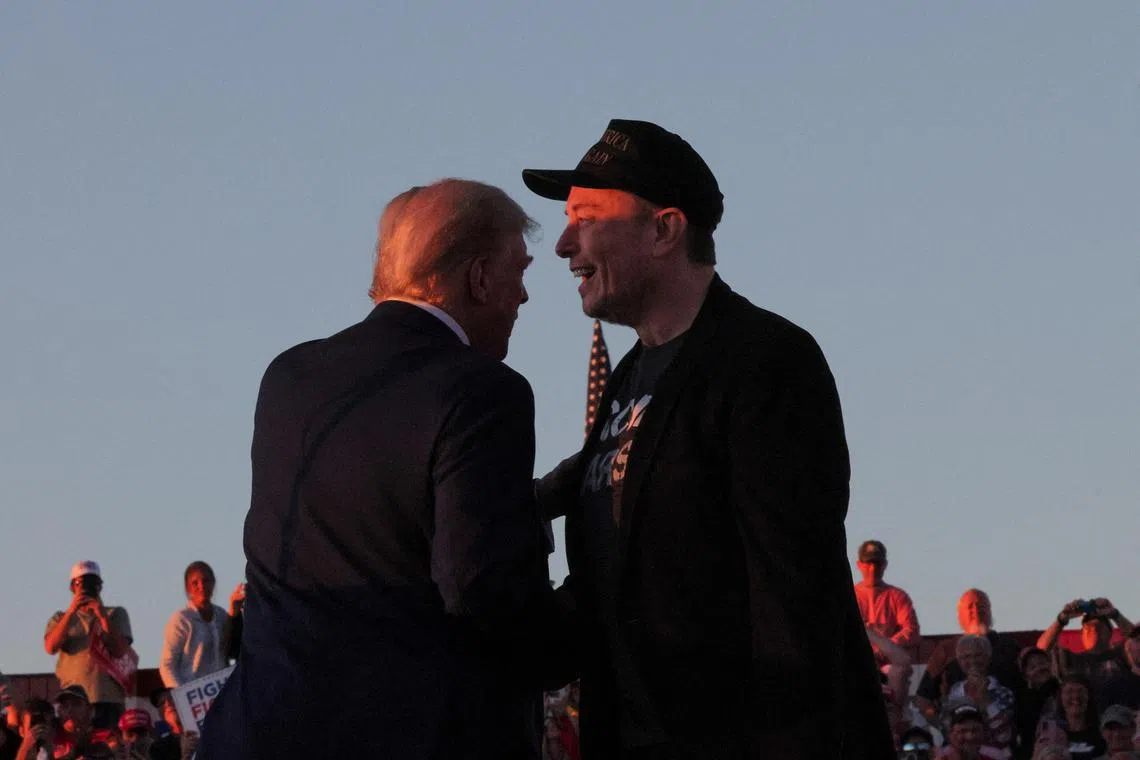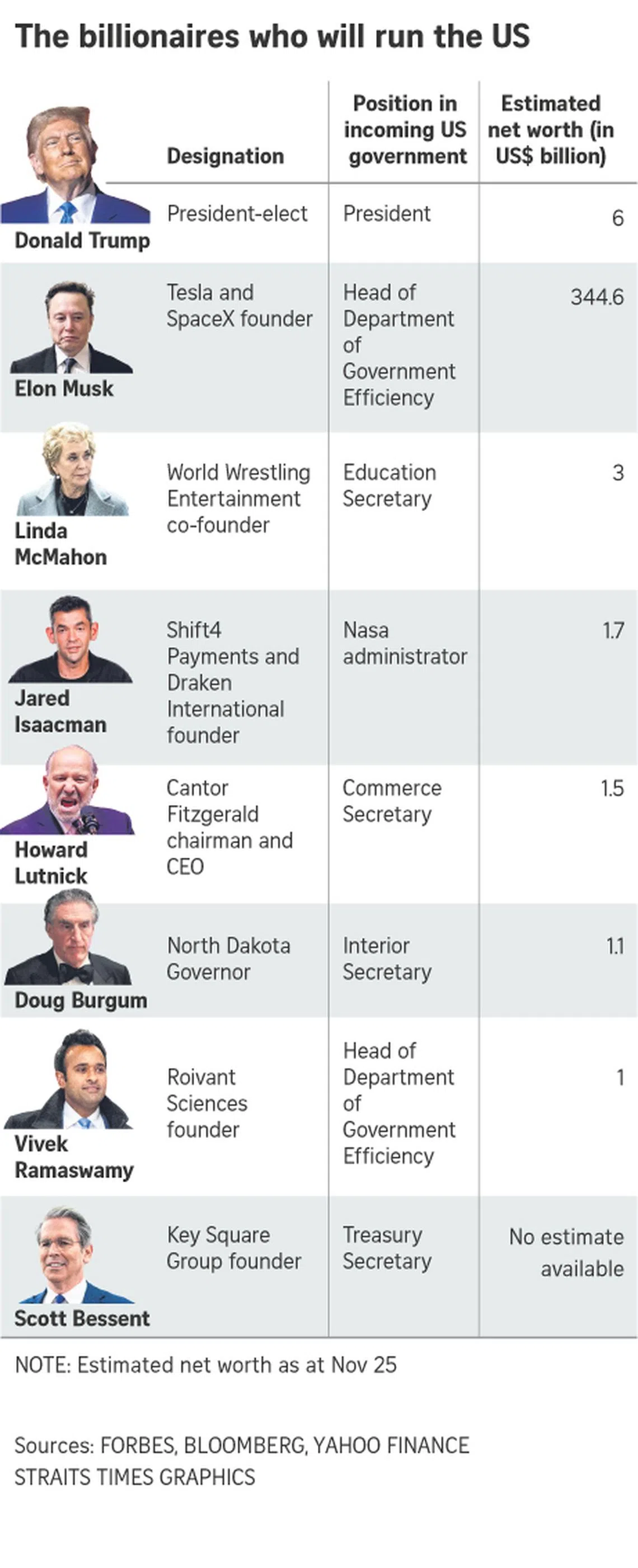Billionaire bros pack Trump’s team
Sign up now: Get ST's newsletters delivered to your inbox

US President-elect Donald Trump's (left) incoming team includes the world’s richest man Elon Musk.
PHOTO: REUTERS
WASHINGTON – When Donald Trump becomes president on Jan 20, at 78 years and seven months, not only will he be the oldest American to take the oath of office, but he will also be the richest.
His net worth is estimated at between US$5.5 billion (S$7.4 billion) and US$6 billion. And his incoming team,
In all, there are close to a dozen billionaires in Trump’s government.
The combined wealth of Trump, his vice-president J.D. Vance, his super-rich nominees and the presidential transition team amounts to over US$313 billion, according to Americans for Tax Fairness, a left-leaning non-profit organisation, in November. The estimated net worth of Mr Musk has since risen to around US$345 billion.
The first Trump Cabinet, which had also set a wealth record, had a combined heft of US$6.2 billion.
It was vastly different when President Joe Biden took office in 2021.
Mr Biden’s US$8 million net worth came from his book deal and speeches while Vice-President Kamala Harris, who was worth about US$7 million, owed her riches largely to her wealthy lawyer husband, Forbes magazine reported at the time.
The wealth gap between Trump and his voters is huge. The average net worth of the American household is US$1.06 million, according to a Federal Reserve Board report in October 2023. The median wealth, which gives a more representative snapshot of the everyday American family, stands at US$192,700.
Is it a matter of concern that the politicians are vastly better off than ordinary citizens?
The Democratic Party certainly raised this point in a Dec 9 media statement that said Trump was stacking his Cabinet with out-of-touch billionaires.
“The truth is Trump and his picks to lead our government are more focused on their own bottom line than on working families,” it said.
At least two of Trump’s top priorities upon taking office in January 2025 can be counted among “rich people” concerns. The first is the extension of the 2017 tax cuts, which disproportionately benefit corporations and high-income earners. And the second is the push towards deregulation – which is on the wish list of nearly all big American businesses.
But these finer points of policy do not seem to bother his voters, who appear to like the fact that Trump is a rich businessman. To them, he represents success, which they can touch, even if vicariously. In fact, his voters expect Trump to usher in a pro-business government. They hope that his policies will generate wealth, and that some of it will “trickle down” to them.
However, it is not just the optics of a billionaire bro Cabinet that raise eyebrows. There is a real danger that nominees with vast business empires will run into potential conflicts of interest while enacting government policies.
One example, in the most obvious case, is while awarding government contracts or carving out tariff exemptions. Ethics experts say the question is a tough one to resolve even if businessmen in government divest their holdings or place their wealth in blind trusts to avoid conflict minefields.




